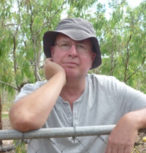DNA reveals the past and future of coral reefs
New DNA techniques are being used to understand how coral reacted to the end of the last ice age in order to better predict how they will cope with current changes to the climate. James Cook Univer

From 2005 to 2022, the main node of the ARC Centre of Excellence for Coral Reef Studies was headquartered at James Cook University in Townsville, Queensland (Australia)








Abstract:
The science of conservation biology has mainly been focused on part of the problem of biodiversity loss; the part that deals with the species and ecosystem processes that we want to protect. But overall, it has failed to engage people and address the complex multi-dimensional natural resource systems that people are part of. I argue that it is necessary to comprehend the social-ecological systems within which conservation actions take place in order to improve the contribution of science to the protection of biodiversity. To that end I describe five scientific tools that could help conservation practitioners influence how complex social-ecological systems work and therefore how they might be managed and governed to deliver both conservation and development outcomes.
Biography:
Chris Margules is an Adjunct Professor in the Faculty of Mathematics and Natural Sciences, University of Indonesia and in the College of Science and Engineering, James Cook University in Australia. Chris has a lifetime of experience working as both a conservation scientist and a conservation practitioner. His research now focuses on integrating conservation and development. He was a research scientist and research program manager at the Commonwealth Scientific and Industrial Research Organisation for 32 years and then Senior Vice-President and leader of the Asia Pacific Division at Conservation International until 2011. He received Order of Australia honours in the General Division (AM) for services to science in 2005.
New DNA techniques are being used to understand how coral reacted to the end of the last ice age in order to better predict how they will cope with current changes to the climate. James Cook Univer
A new study on the effects of climate change in five tropical countries has found fisheries are in more trouble than agriculture, and poor people are in the most danger. Distinguished Profess
James Cook University researchers have found brightly coloured fish are becoming increasingly rare as coral declines, with the phenomenon likely to get worse in the future. Christopher Hemingson, a
Researchers working with stakeholders in the Great Barrier Reef region have come up with ideas on how groups responsible for looking after the reef can operate more effectively when the next bleaching
Abstract: As marine species adapt to climate change, their heat tolerance will likely be under strong selection. Individual variation in heat tolerance and its heritability underpin the potential fo
Abstract: The Reef Ecology Lab in KAUST’s Red Sea Research Center explores many aspects of movement ecology of marine organisms, ranging from adult migrations to intergenerational larval dispersal
Abstract: Macroalgal meadows are a prominent, yet often maligned component of the tropical seascape. Our work at Ningaloo reef in WA demonstrate that canopy forming macroalgae provide habitat for ad
Abstract: Sharks are generally perceived as strong and fearsome animals. With fossils dating back at least 420 million years, sharks are not only majestic top predators but they also outlived dinosa
Abstract: Connectivity plays a vital role in many ecosystems through its effects on fundamental ecological and evolutionary processes. Its consequences for populations and metapopulations have been
Abstract: Evolution of many eukaryotic organisms is affected by interactions with microbes. Microbial symbioses can ultimately reflect host’s diet, habitat range, and even body shape. However, how
Abstract: The past few years have seen unprecedented coral bleaching and mortality on the Great Barrier Reef (GBR) but the consequences of this on biodiversity are not yet known. This talk will expl